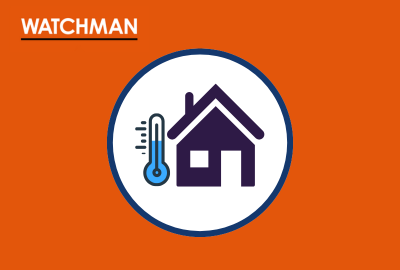Wildfires and flooding in many countries are also becoming more frequent and deadlier, with properties often badly damaged or destroyed.
Here in the UK, the summer of 2025 has seen temperatures swing between the low 30s (rising to more than 34⁰c in parts of London and the South East) and then dropping quickly to 10-15⁰c. Many areas have also seen torrential rain, and major flooding in areas that have become particularly dry.
The implications and risks for personal representatives and trustees of properties that stand empty for lengthy periods of time must not be overlooked. The reality is that the risk of flooding and water is increasing in some areas.
While contrasting weather is nothing new in Britain, the Met Office has warned that extreme weather is becoming more frequent – and could become the norm. In July 2025, it reported that the last three years have been in the top five warmest years since records began (in 1884); and Britain is also become wetter.
Flooding properties
We should not be surprised when the authorities start to issue warnings to property owners. In June, the Mayor of London wrote to the owners of 560,000+ basement properties warning they were at increased risk of floods because of climate change. In December 2024, Action on Empty Homes data revealed more than 38,000 residential homes were empty in London at the end of 2004 (a 6% increase on the previous year). Across England, around a million homes are unoccupied.
Meanwhile, the Climate Change Committee predicted in late spring that 25% of all properties will be at risk of flooding by 2050. Water damage, if left undetected for even a short while, can quickly escalate in repair costs to tens of thousands of pounds.
Probate properties
Some reports say up to 9 in 10 empty residential properties are probate properties; but while it’s difficult to ascertain the real number – we can be certain that a significant proportion of residential homes are empty because of probate delays.
Empty probate properties are at particular risk of flooding, as well as storm damage; fire damage; electrical faults; structural disrepair; and criminal damage such as arson and burglary. The need for robust property insurance is therefore crucial and the benefits of bespoke unoccupied domestic property insurance cannot be underestimated.
Watchman – unoccupied property insurance deserves serious consideration: it is simple to arrange, cost-effective and geared specifically to cover the risk of residential properties which are unoccupied after the death of the owner (or where the owner has gone into care).
Importantly, unlike many similar policies that may completely exclude water damage from burst pipes, Watchman offers a number of options that allow you to cover such damage. Subject to postcode, the policy also usually covers flooding, malicious damage and subsidence.
The property will need to be checked every 30 days, but this is less onerous than other policies that require a check every 7 days.
Many other unoccupied residential property insurance policies also demand payment of an upfront premium, which can add to any potential cashflow problems. However, with the Watchman policy there is no such requirement – only a small initial deposit is required for cover to be in place. Cover is calculated at a fixed daily rate; and the full insurance premium is then paid on completion of the sale or (if earlier) within 12 months. Cover can be arranged on the same day by telephone from a friendly and knowledgeable team.
Transparency is an important element of the Watchman policy, with no hidden charges or cancellation fees.
If you are professional executors or acting for executors, it is important to remember that arranging adequate insurance is vital. As trustees, there is a legal duty to protect and preserve estate assets and if the property – often the most valuable asset - is inadequately insured and financial loss is caused to the estate as a result, the trustees could be personally liable for such losses.
Arranging adequate insurance ought to be considered a first step: those responsible for empty properties should arrange and keep a record of regular practical checks of the property – particularly in bad weather. Water, gas and electricity should be turned off; letter boxes sealed; and anything inside the property that could attract criminals should be hidden or removed from the property.
You can get more information and a quote by contacting us here







